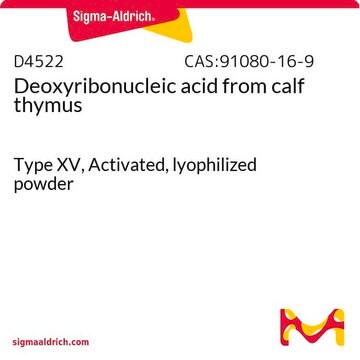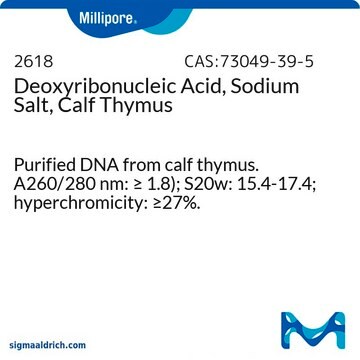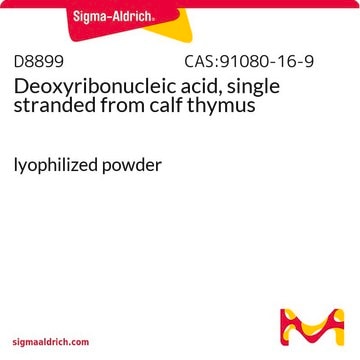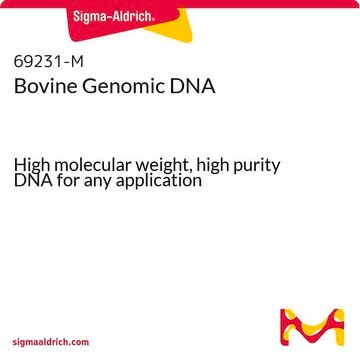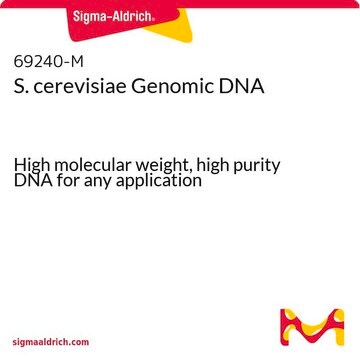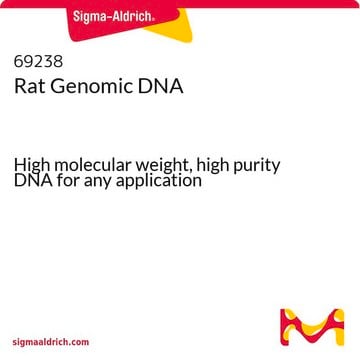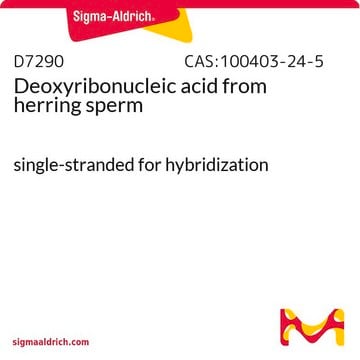D4764
Deoxyribonucleic acid from calf thymus
Genomic, unsheared
Sinónimos:
double-stranded template DNA, Calf Thymus DNA, DNA from calf thymus, Thymonucleic acid
About This Item
Productos recomendados
grado
for molecular biology
Nivel de calidad
Formulario
lyophilized powder
mol peso
>20 kb
temp. de almacenamiento
2-8°C
¿Está buscando productos similares? Visita Guía de comparación de productos
Descripción general
Especificidad
% GC is the percentage of G/C base pairs. Tm is the temperature at the midpoint of the thermal denaturation profile.
Aplicación
Características y beneficios
• High quality template DNA
Nota de preparación
Reconstitución
Producto relacionado
Código de clase de almacenamiento
10 - Combustible liquids
Clase de riesgo para el agua (WGK)
WGK 3
Punto de inflamabilidad (°F)
Not applicable
Punto de inflamabilidad (°C)
Not applicable
Equipo de protección personal
Eyeshields, Gloves
Elija entre una de las versiones más recientes:
Certificados de análisis (COA)
¿No ve la versión correcta?
Si necesita una versión concreta, puede buscar un certificado específico por el número de lote.
¿Ya tiene este producto?
Encuentre la documentación para los productos que ha comprado recientemente en la Biblioteca de documentos.
Los clientes también vieron
Nuestro equipo de científicos tiene experiencia en todas las áreas de investigación: Ciencias de la vida, Ciencia de los materiales, Síntesis química, Cromatografía, Analítica y muchas otras.
Póngase en contacto con el Servicio técnico